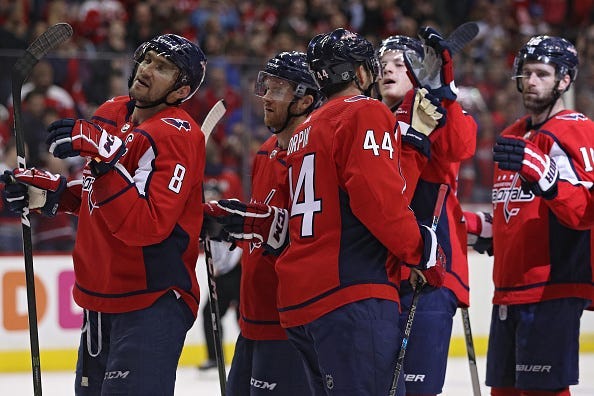
A huge part of the Caps' problems during the regular season, in particular during a seven-game losing streak in January, was allowing too many power play goals, but the problem was generated by taking too many penalties.
The Caps were 11th highest in the league with an average of 8:54 penalty minutes per game. They committed the seventh most penalties during the regular season (313) with 281 minor infractions, sixth most in the NHL.
For comparison, the Tampa Bay Lightning took the most minor penalties in the league, but were the best penalty killing unit in hockey at 85%. The Caps were not.
The Carolina Hurricanes have the 20th best power play at 17.8%, so on the surface, the Capitals should be able to counter the Hurricanes attack with the extra man.
During the Stanley Cup run last year, the Caps were at 76.0% on the penalty kill after a rough start against Columbus. They allowed a conversion clip of 50% in two losses (4-of-8) to start the playoffs and then clamped down, at one point killing 22 consecutive power plays.
Last year, Washington finished at 29.3% during the 24-game playoff run to a title. To provide some context, Tampa Bay, which led the NHL in power play percentage during the 82-game regular season, finished at 28.2%.
It’s not going to be easy to start. The Hurricanes finished eighth in the NHL with an 81.6% penalty kill rate.
Part of the problem with the extra man? The Caps have at times been guilty of not being able to penetrate the offensive zone when trying to carry the puck. They would be better served by dumping and chasing. Also, at times, the Caps top unit on the power play stays on the ice for far too long trying to generate offense.
They would be better served by a better rotation to keep the unit fresher.
“I think faceoffs are important. Puck possession is important. I’m not discounting our faceoff percentage,” MacLellan said. “It is important …We have guys that haven’t been as good as they were last year.”
If the Caps can win these battles in the offensive zone on a consistent basis, beyond the goal line, they have an excellent chance of going far.
Washington had 1,074 missed shots this year (fourth most in the NHL) during the regular season, or an average of 13.09 per game.
The Carolina Hurricanes had the second most missed shots in the league at 1,214, or 14.8 per game.
Look for plenty of opportunities as both teams are good in transition, but it might come down to as simple as getting chances on target.
Speaking of transition, the Hurricanes have plenty of speed, skill and ability to make you pay for mistakes. Washington had the 10th most giveaways during the regular season at 960, an average of 11.7 per game.
Carolina had the second most takeaways per NHL.com out of 31 teams at 889, or 10.8 per game on average.
The point? Be careful with and value the puck. The Hurricanes can and will burn you when you make a mistake.

